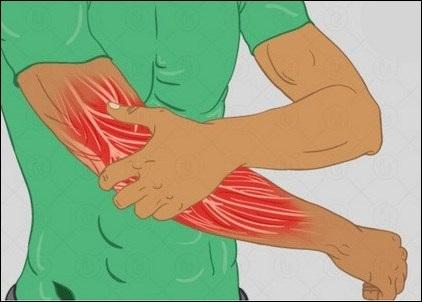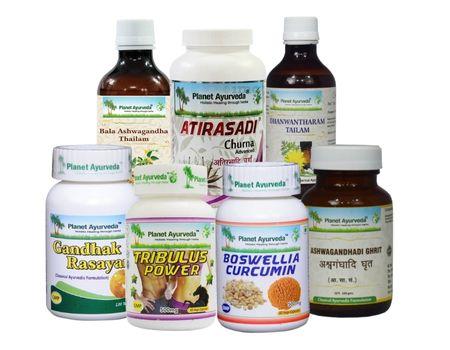ABSTRACT
Myotonic Dystrophy is a part of genetic inherited disorders. It is also known as Muscular Dystrophy. Myotonic Dystrophy is characterised by progressive muscle wasting and weakness. In this disorder, there is prolonged muscle contraction and not being able to relax certain muscles after use. It progresses to myopathy, myotonia, and multiorgan involvement. Myotonic Dystrophy is based on phenotype, inheritance, genetic defects, and protein involvement. Most congenital and childhood-onset Muscular Dystrophy shows Autosomal Recessive Inheritance. Genetic splitting and lumping are frequently observed in Muscular Dystrophy. It is mainly an X-linked gene disorder.

INTRODUCTION
Myotonic Dystrophy is an inherited type of Muscular Dystrophy that affects muscles and other systems of the body. The weakening and muscle wasting slowly progress to disability. Symptoms usually show up around the 20s or 30s but it can happen at any age. At least 1 out of 8000 people worldwide is affected with myotonic dystrophy. There are different types of muscular dystrophy and most of them are found in boys at an early stage of life. In this disease, there is a hindrance to the production of proteins produced by abnormal genes which are needed in the formation and nourishment of healthy muscles. As per the Ayurvedic point of view, it is correlated with vata dosha vridhi and dhatu kshaya.
TYPES
There are two major types of myotonic dystrophies
Type 1 Myotonic Dystrophy:- It is one of the two types of muscular dystrophy. It not only affects the muscles but the heart, eye, and endocrine system as well. It has 3 forms: mild, classical, and congenital. Mild has the least severe symptoms as compared to others and is associated with a normal life span. The classical form is characterized by muscle weakness, and wasting of muscles, and it often leads to abnormal heart function. The congenital form is characterized by severe general weakness at the time of birth. It often leads to death just after birth because of complications with breathing.
SYMPTOMS
Symptoms can differ from person to person. Every symptom must be included in every patient.
- Cardiac Conduction Abnormality (abnormality of progression of electrical conduction)
- Distal muscle weakness
- Excessive daytime sleep
- Myotonia
- Subcapsular cataract
- Abnormal rapid eye movement
- Psychiatric disturbance
- Intellectual impairment
- Fatigue
- Foot dorsiflexor weakness
Type 2 Myotonic Dystrophy
It is inherited muscular dystrophy which affects the muscles and other systems of the body. It is characterized by prolonged muscle tensing as well as muscle weakness. The signs and symptoms occur during the age of twenties and thirties. Muscles in the neck, fingers, and hips are typically affected. It is inherited in an autosomal dominant pattern and is caused by genetic changes in CNBP genes.
SYMPTOMS
Symptoms of this disease can vary from mild to severe in different cases.
- Delayed relaxation of muscle fibres
- Cataract
- Arrhythmias or heart block
- Proximal muscles tend to be more weaker
- Head, neck, and, face muscle weakness
CAUSES
Autosomal Dominant Inheritance
The person inherits the pathogenic variant from a parent who has the genetic disease. The disease occurs due to the new pathogenic variant in the causal gene. Each child of an individual with an autosomal dominant disease has a 50% chance of inheriting the variant and the disease.
- Type 1 is caused by a mutation in the DMPK gene.
- Type 2 is caused by a mutation in the CNBP gene.
- In each case, the segment of DNA is abnormally repeated many times and forms an unstable region in the gene.
- These changes are responsible for less or no production of proteins which leads to dystrophy.
DIAGNOSIS
PHYSICAL EXAMINATION
Muscular Dystrophy is diagnosed by doing a physical examination. The presence of myotonia and pattern of muscle wasting will help in identifying MD. There will be a weakness in the jaw and neck muscles.
LAB TEST
There are several tests to diagnose myotonic dystrophy. EMG ( Electromyography ) is done by inserting a small needle into the muscle. The electrical activity of the muscle is studied and shows the pattern of electrical discharges.
For the absolute examination, there is a genetic test. For this, a blood sample is taken to identify the altered gene within the chromosome. These are present within the white blood cells. Gene alteration in CNBP and DMPK is responsible for myotonic dystrophy.
TREATMENT
There is no absolute treatment available for Myotonic Dystrophy in modern science. Ankle support and Leg braces can help when the symptoms worsen. There are few medications that lessen the myotonia. Symptomatic treatment is given for the heart and eye problems.
AYURVEDIC OVERVIEW OF MYOTONIC DYSTROPHY
As per the Ayurvedic point of view, health is a balanced state of all three doshas ( vata, pitta, and kapha ) and all seven dhatu present normally. An imbalance in any of them leads to disease. In Ayurveda, muscular dystrophy is described as Mamsashosha. In this condition, there is a decrease in mamsa dhatu. Agni leads to muscle destruction. To manage muscular dystrophy there is a need to balance vata, pitta dosha, and proper nourishment to muscle. Vitiation of digestive fire leads to improper absorption of nutrients which further leads to weakness.
AYURVEDIC MANAGEMENT
Myotonic Dystrophy is managed by Panchkarma as well as by oral medication.
Oral Medication
Oral medication is mainly focused on symptomatic relief. The general management of vata vyadhi is adopted.
Popularly used medicines are
- Yograj Guggul
- Dashmool Kwath
- Ekangveer Ras
- Ashwagandha Avaleha
- Narsimha Churan
- Shatavari churan
Panchkarma
Shashtikashali Pinda Sweda
250 gm of shashtikashali is cooked in 1.5 ltr of decoction of balamoola and milk. A cooked mixture is made into a bolus in cotton cloth. A whole-body massage with dashmoola oil is to be done for 10 minutes followed by a whole-body massage for 45 minutes with a bolus of shashtikashali. Then abhyanga with dashmoola oil is repeated for the next 10 minutes.
Mustadi Yapana Basti
Honey 50 gm, rock salt 5gm, Panchtikataghrita 50 ml, Ashwagandha oil 50 ml, Satapushpa kalka 15 gm, milk processed with mustadi yapana basti kwath 300 ml were mixed in standard sequence for basti preparation to forms a homogeneous emulsion which was indirectly heated on a water bath.
HERBAL REMEDIES FOR MYOTONIC DYSTROPHY BY PLANET AYURVEDA
Planet Ayurveda is a GMP Certified company offering products worldwide. All the products are prepared by following the Ayurveda texts and under the strict guidance of MD Ayurved experts. All the products are made from pure herbs and devoid of any kind of side effects which make them safe to use. Let's have a look at the formulations
- Tribulus Power
- Ashwagandhadi Ghrit
- Atirasadi Churna
- Boswellia Curcumin
- Gandhak Rasayan
- Bala Ashwagandha Thailam + Dhanwantharam Tailam


PRODUCTS DESCRIPTION


1. TRIBULUS POWER
Tribulus Power is a capsule formed by Planet Ayurveda. It is prepared by Ayurveda experts using a standardised extract of Gokshura ( Tribulus terrestris ). It has ample health benefits. This herb balances all three doshas and it has tridosha pacifying, shoolhara (Pain relieving) and agnikrit-like properties.
Dosage:- 1 capsule twice daily with plain water after meals.
2. ASHWAGANDHADI GHRIT
Ashwagandhadi Ghrit is a classical ayurvedic ghrit formulation. Its main content is Ashwagandha (Withania somnifera) along with Bhibhitaki (Terminalia bellirica). It is enriched with properties of both vajikarna (Aphrodisiac) and rasayan (Rejuvenative). Helpful in balancing all the three doshas. Hence, provides nourishment to all sapta dhatus. Also helpful in retaining muscle strength.
Dosage:- 1 tsp daily with warm milk/water.
3. ATIRASADI CHURNA
Atirasadi Churna is a polyherbal preparation by Planet Ayurveda. It has rejuvenating effects. It helps in the nourishment of Mamsa and Shukra dhatu. It contains many ingredients like Safed Musli (Chlorophytum borivilianum), Kali Musli (Curculigo orchioides), Semal Musli (Salmalia malabarica), Shatavari (Asparagus racemosus), etc.
Dosage:- 1 tsp twice daily with plain water after meals.
4. BOSWELLIA CURCUMIN
Boswellia Curcumin is a unique formulation by Planet Ayurveda. It contains ingredients like Shallaki (Boswellia serrata) and Haridra (Curcuma longa). Both ingredients are present in equal quantities (250 mg) in capsule form. It helps in retaining muscle strength. It is helpful in increasing the overall immunity of the body.
Dosage:- 1 capsule twice daily with plain water after meals.
5. GANDHAK RASAYAN
Gandhak Rasayan is a classical ayurvedic medicine. Its main content is Shuddha gandhak. Gandhak Rasayan is well known to bolster immunity and enhance body strength, stamina, and nourishment.
Dosage:- 2 tablets twice daily with warm water.
6.BALA ASHWAGANDHA THAILAM + DHANWANTHARAM TAILAM
Bala Ashwagandha Thailam and Dhanwanthram Tailam are prepared by Planet Ayurveda and formulated as per the Ayurvedic texts. Both oils are used for vat disorders. These oils are meant for local application only. The oil application also improves muscle strength. All of these help in promoting blood circulation in the affected areas. Both oils are to be mixed in equal quantities and to be heated first. Gently massage the affected area and keep it for at least 6 hours. This oil will provide strength to the muscles.
Contact Planet Ayurveda Support Team to provide you the costing/ordering and delivery information at - [email protected] or Call at 0172-521-4030 (India), +91-172-521-4030 (Outside India) or Whatsapp at (+91) 9915-593-604CONCLUSION
Although there are many fundamental aspects of the mechanism, Myotonic Dystrophy is still unrevealed, especially in the brain. It is a multisystemic disease characterized not only by muscles and heart but also there is CNS alteration. They are now recognized as brain diseases in which both newborns and adults are involved. There is no absolute treatment available for this disease. All about symptomatic management. Ayurveda is proven to be the best line of treatment for Myotonic Dystrophy.

